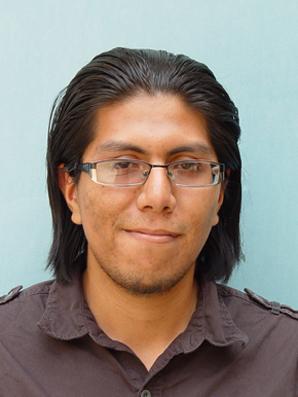Professors gathered in a rally in Palm Plaza at Glendale College’s Garfield campus on Oct. 17 to urge students to register to vote and to inform them about propositions 30, 32 and 38.
Several people spoke to the crowd in four languages on the implications of Proposition 30 and what the consequences would be if it failed to pass, how Proposition 38 differs from Proposition 30, and the importance of voting against Proposition 32.
“A proposition is something that isn’t always understood,” said ESL instructor Marcia Walerstein-Sibony, who organized the event. “I myself have gone to the polls and not voted ‘yes’ or ‘no’ on a proposition because I didn’t know what it meant.”
Walerstein-Sibony spoke to the sparse crowd in English, continuing education instructor Elodia Collins Gonzales spoke in Spanish, GCC student Vahe Saogsyan spoke in Armenian and Garfield student Dalel Saogsyan spoke in Arabic.
Proposition 30 is a measure that would raise taxes to provide funding for colleges and K-12 education. The opposing measure, Proposition 38, would only provide funding to the K-12 system, resulting in additional cuts to colleges like GCC (and by extension the Garfield campus).
“We used to have fall, we had winter, we had spring, we had two summer sessions. Students could do a whole semester of ESL in the summer,” said Walerstein-Sibony. “They can’t get a course in the summer, they can’t get a class in the winter – they don’t exist.”
Afterward, Walerstein-Sibony opened up a voter registration session while ESL instructor Debbie Tannenbaum took control of the rally and started a discussion of social issues such as Citizens United, the U.S. Supreme Court case that lifted restrictions on corporate donations to candidates.
“Corporations can give their money to a candidate and they don’t have to say who they are, and candidates don’t have to say who they are,” said Tannenbaum.
Walerstein-Sibony said that the rally was mainly to get new voters registered before the Oct. 22 deadline, although she wished there was a larger turnout.
“In numbers, we didn’t have as many. Most of what we did was in class, which was permitted – the teachers asked students [to register],” said Walerstein-Sibony. “We found in a lot of classes, there were three or four students.”
“The main difference in recruiting voters on the Garfield campus as opposed to GCC was demographics,” said ASGCC president Arman Marukyan.
“Some of the people here on campus aren’t citizens and haven’t been registering,” said Marukyan.
Therefore, the Proposition 30, 32 and 38 campaigns at Garfield have been different from those at the main campus, focusing more on informing rather than registering.
“We want to get information to them to disseminate to other people and to understand the issues, especially Proposition 30,” said Walerstein-Sibony.
Aside from informing students about the propositions, the rally was also meant to get students at Garfield more involved in activities on campus.
“I feel that there’s a great need at Garfield to develop the skills of democracy [and] the skills of government,” said Walerstein-Sibony. “We don’t have it like you have on the main campus.”

